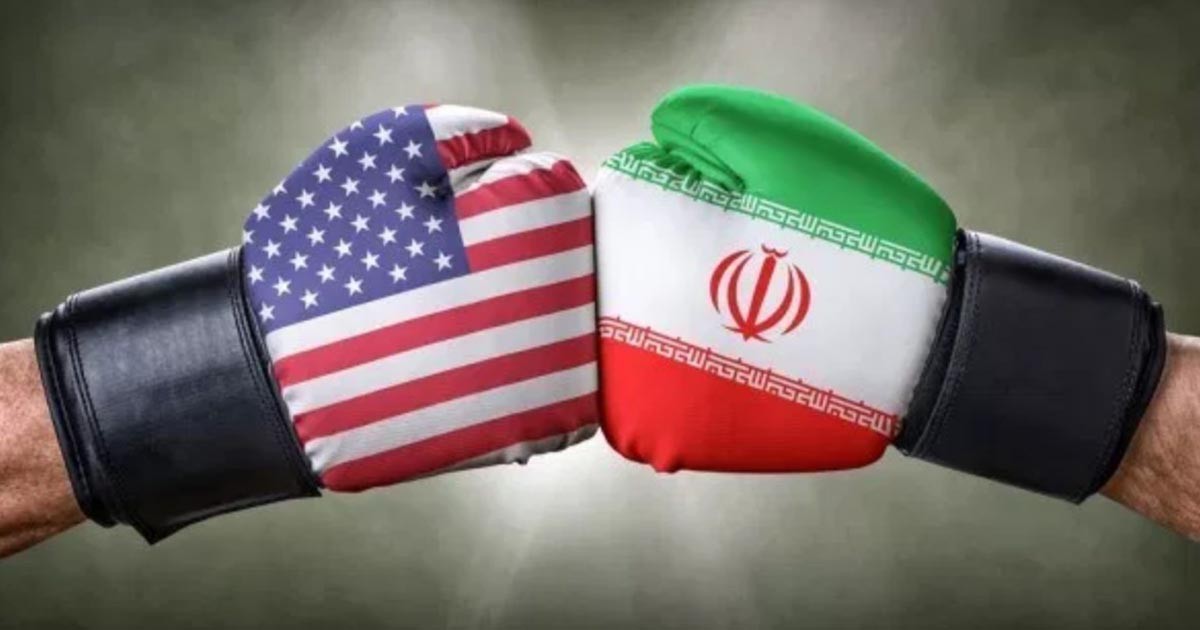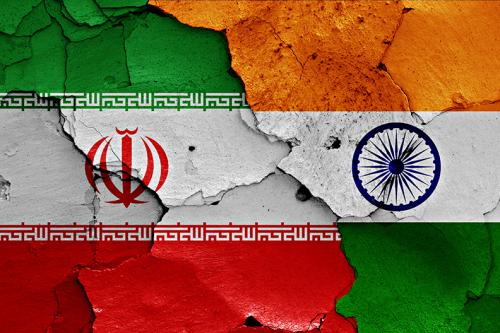News Desk |
The US-Iran conflict has further intensified as a result of the alleged attacks carried out on two vessels in the Gulf of Oman on Thursday.
The Strait of Hormuz, the single most important trade route for the West and allies, being in close proximity with the Gulf of Oman could lead to a potential war situation in the gulf after the attack on an oil carrier vessel and a cargo ship.
The Significance of the Strait of Hormuz
The strait connecting the Gulf with South Asia and beyond is considered to be one of the most significant choke-points of the world. The strait is, in fact, a maritime gateway for the gulf and middle east at large to the rest of the world.
The US administration made an announcement in April this year threatening states with US-backed sanctions if oil trade continued with Iran.
The 21 miles wide passage, amounts to trade of 80 percent crude oil to Asia with an estimated 22.5 million barrels of oil passing through the straight on a daily basis since 2018.
US too Quick to Blame Iran for Attacks
The President of the United States, Donald J. Trump, in a tweet on Thursday, said that the US was not ready to negotiate a peace deal with Iran as of yet.
While appreciating the Japanese Prime Minister, Shinzo Abe’s visit to Iran for making mediation efforts between the two hostile states, Trump proclaimed that it was “too early” to make a deal with Iran.
Read more: Another attack in the Gulf: U.S holds Iran responsible with video evidence
The tweet came hours after two oil tankers were attacked in the Gulf of Oman. The US Secretary of State, Mike Pompeo in a press brief on Thursday blamed Iran for “escalating tensions” in the region.
Is Tehran Alone Responsible for Regional Hostility?
Two competing narratives exist in the debate of who is to blame for the on-going dispute. On one hand, the Trump administration is held responsible for creating a situation of power vacuum with their withdrawal from the Joint Comprehensive Plan of Action (JCPOA) also known as the Iran Nuclear Deal negotiated by the former US President Barrack Obama in 2015.
Whereas, the opposing narrative is based on the longstanding mistrust of the US with Iranian intentions. The present administration under President Trump strongly feels that the current circumstances could potentially lead to a regime change in Iran- an endeavor favored by its key ally, Israel.
The attack was seen as an attempt to sabotage Iranian willingness to resolve the dispute in the Gulf and to improve its relations with the international community.
However, if the present situation is viewed from an objective perspective it will be clear that none of this would have happened if the US had not withdrawn from the Iran Nuclear Deal. Since Trump’s assumption of the highest office in the US, Gulf is being further embroiled in conflict with fears of military escalation on the rise.
Repercussions of the Withdrawal from Iran Nuclear Deal
In 2018, the US withdrawal from the deal also came with the re-imposition of sanctions significantly disrupting the Iranian economy that had hopes to recover after the 2015 deal.
The US administration made an announcement in April this year threatening states with US-backed sanctions if oil trade continued with Iran. As a result of which eight major Iranian oil buyers were forced to stop trade with the country.
German Foreign Minister Heiko Maas holds talks with his Iranian counterpart Javad Zarif on the future of the 2015 nuclear deal, which he described as “extraordinarily important” for Europe, but adding: “We do not want Iran to have nuclear weapons.”https://t.co/yNfe3sYenS
— Al Arabiya English (@AlArabiya_Eng) June 10, 2019
The Iranian FM earlier this week in a meeting with Heiko Maas, German Foreign Minister, termed US stringent policies on Iran oil trade as an “economic war” to which he warned the US stating, “Whoever starts a war with us will not be the one who finishes it”.
Read more: Reconciliation of Trump and Rouhani administrations: Abe visits Iran
In addition to the economic restrictions being forced onto Iran, the US last month deployed additional forces in the Middle East in a response to “unknown” threats by Iran. The military deployment comprising of aircraft carriers and b-52 bombers without evidence of the so-called Iranian threat was seen as a “psychological warfare” against Iran.
As a result of US withdrawal, Iran had also announced in May to withdraw from certain commitments of the nuclear deal that allowed it to enrich a high-level of uranium and heavy water.
While I very much appreciate P.M. Abe going to Iran to meet with Ayatollah Ali Khamenei, I personally feel that it is too soon to even think about making a deal. They are not ready, and neither are we!
— Donald J. Trump (@realDonaldTrump) June 13, 2019
Timing of the Attacks Indeed “Suspicious”
While Washington has not yet provided any credible evidence to support its accusations on Iran, Pompeo in a press briefing stated that the “assessment of the US” can confirm that “no proxy group operating in the area has the resources and proficiency to act with such degree of sophistication”.
According to Pompeo, the US assessment was based on intelligence reports, evaluation of weapons used in the attack and the level of expertise required for the execution of the attack was similar to that of the previous maritime aggression carried out by Iran.
Read more: Another attack in the Gulf: U.S holds Iran responsible with video…
However, various analysts believe that the US accusation on Iran is a rather hasty verdict that could lead to a possible military escalation in the region.
The attack took place at a sensitive time; one of the said vessel under attack reportedly carried cargo for Japan while the Japanese PM was visiting Iran to meet the Iranian Supreme Leader, Ayatollah Ali Khamenei- a first since the Iranian revolution- to discuss the on-going conflict in the gulf.
"The Islamic Republic of Iran is responsible for the attacks that occurred in the Gulf of Oman today"
US Secretary of State Mike Pompeo says intelligence and the weapons used suggest Iran was behind explosions on two oil tankers https://t.co/dnOrLJiaLr pic.twitter.com/Y5KQM7JVx2
— BBC News (World) (@BBCWorld) June 13, 2019
The attack was seen as an attempt to sabotage Iranian willingness to resolve the dispute in the Gulf and to improve its relations with the international community. Following the attack, the FM of Iran, Mohammad Javad Zarif took to twitter expressing “suspicion” on the timings of the attack.














